Scientific Advisory Board
Adopt-A-Scientist– Cure Cancer, a private foundation exempt under Internal Revenue Code 501(c)(3), was formally created in 2018 by cancer survivor Dewey Stringer and Dr. Katherine Pulse with the guidance of Dr. Eric Jonasch, Stephanie Young, and Mark Stringer. Its efforts began in 2016 and, initially, Adopt-A-Scientist – Cure Cancer helped facilitate donations directly to the cancer institutions conducting the research, including the University of Texas MD Anderson Cancer Center and Baylor College of Medicine. Our Board members have diverse skill sets and experiences but are united in their passion to help researchers cure cancer and improve the wellness and quality of life of cancer patients.
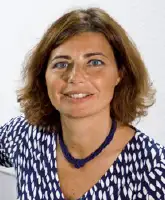
Monica Bettencourt-Dias, PhD
SCIENTIFIC ADVISOR
Dr. Mónica Bettencourt Dias obtained her PhD from University College London, London, working on heart regeneration with Professor Jeremy Brockes. Thereafter she spent 5 years at the University of Cambridge (UK) as a research associate, working on cell cycle regulation with Professor David Glover. At the same time, she did a two-year diploma course at the Birkbeck College in London on Science Communication. In 2006, she set up her group at the Instituto Gulbenkian de Ciência and was director of the Institute from 2018 to 2024.
Mónica ́s group identified essential mechanisms in the regulation of the cytoskeleton, in particular centrosome biogenesis and how it contributes to tumorigenesis. Her laboratory at IGC studies centriole and cilia biogenesis, stability and function using a variety of model organisms and patient samples, and combining genetic, cellular, biochemical and bioinformatic approaches.
Mónica and her work have been recognised by many prizes, honors and grants, such as two Pfizer prizes, the Eppendorf Young Investigator award, the Keith Porter fellowship (ASCB), being a member of EMBO YIP, EMBO, the Portuguese Academy of Sciences, the Gold medal of the city council of Oeiras, chairing the EU-Life Alliance of Life Science Research Institutes and having had a Starting and a Consolidator ERC.
Mónica has participated in numerous scientific advisory boards and is currently a member of the Scientific Advisory Board of EMBL (Germany) and is the coordinator of the FCT Scientific Council for Life Sciences and Health.

Ronald DePinho, MD, PhD
SCIENTIFIC ADVISOR
Ronald A. DePinho, M.D. is currently past president and distinguished university professor of The University of Texas MD Anderson Cancer Center. His research has focused on the fundamental mechanisms driving cancer and aging and the clinical application of such knowledge to prevent and treat disease.
Dr. DePinho studied biology at Fordham University, where he graduated class salutatorian, and received his M.D. degree with distinction in microbiology and immunology from the Albert Einstein College of Medicine. He performed his residency and postdoctoral training at Columbia-Presbyterian Medical Center. Dr. DePinho’s independent career began at Einstein as the Feinberg Senior Faculty Scholar in Cancer Research and an ACS Research Professor. He then joined the Dana-Farber Cancer Institute and Harvard Medical School where he was the founding Director of the Belfer Institute for Applied Cancer Science and a Professor of Medicine and Genetics at Harvard. As president of MD Anderson, Dr. DePinho conceived and launched the Moon Shots Program, a goal-oriented comprehensive effort designed to accelerate declines in cancer incidence and mortality. This initiative has yielded practice-changing advances in cancer and inspired the national cancer moonshot under President Biden. He also elevated MD Anderson’s research and graduate programs, recruited many world class faculty including National Academy Members and its first Nobel Prize. To improve cancer care beyond MD Anderson, he launched and assembled a network of cancer institutions in 24 countries, reaching one-third of the human population.
As a researcher, he has published over 400 articles, books and chapters that have advanced our understanding of cancer, aging and degenerative disorders which have led to clinical advances including new cancer drugs and diagnostics. His most notable discoveries include elucidation of the core molecular pathway for aging, determination of the basis for the intimate link between advancing age and increased epithelial cancer incidence, and demonstration that aging itself can be reversed. To translate these basic discoveries, he founded several private and publicly traded biotechnology companies and served as an advisor or director for biotech and large biopharma companies focused on oncology. His public service includes advisory and directorship roles for AACR and the NIH, as well as the Vatican. He is chairman and co-founder a non-profit, OPA Health (previously, Unite to Prevent Cancer) whose mission is disease prevention in underserved communities. As an advocate, he was a key driver in the bipartisan bill raising the age of tobacco purchase to 21 (T21) and the bipartisan Cures Act. He is Vice Chair of the BOD for Act For NIH, a non-profit advocacy organization to garner bipartisan support for the NIH resulting in an additional $9 billion to the base budget and restoring the NIH budget following years of inflationary decline.
For his fundamental contributions to cancer and aging and to healthcare, he has been recognized with numerous honors and awards. He was named one of the 100 most influential healthcare leaders, according to Modern Healthcare. His honors include the Melini Award for Biomedical Excellence, the American Society for Clinical Investigation Award, the Biomedicum Helsinki Medal, Albert Szent-Györgyi Prize, AACR Clowes Award, American-Italian Foundation Prize, among others. He is a member of the National Academy of Medicine and the National Academy of Science, and a fellow of the American Academy of Arts and Sciences, the American Association of the Advancement of Science and the American Association of Cancer Research. He received Fordham University’s McMahon Memorial Award for Distinguished Public Service, honorary degrees from Harvard University and Hofstra University, and the Ellis Island Medal of Honor. For his work to improve the health of Portugal’s people, Dr. DePinho was recognized by its president with the highest commendation, the Order of Saint James of the Sword.
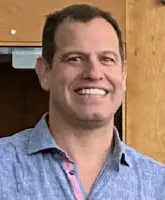
Roger Greenberg, MD, PhD
SCIENTIFIC ADVISOR
Roger Greenberg, MD, PhD, is the J. Samuel Staub, M.D. Professor in the Department of Cancer Biology and Director of the Penn Center for Genome Integrity and the Scientific Director of the Basser Center for BRCA at the University of Pennsylvania Perelman School of Medicine. Dr. Greenberg’s laboratory investigates basic mechanisms of genome integrity maintenance and their impact on cancer etiology and response to therapy. His group discovered ubiquitin as critical to DNA damage recognition by BRCA1, biallelic mutations in BRCA1 as a cause of Fanconi Anemia, ALC1 as a new drug target in BRCA mutant cancers, and visualization of transcriptional silencing adjacent to DNA double-strand breaks. Dr. Greenberg’s group has also established methodologies to investigate nearly every step of recombination dependent telomere lengthening in real time. A more recent direction of his research involves understanding communication between the DNA damage and immune responses. Several of these fundamental discoveries from the Greenberg laboratory have been translated, inspiring clinical trials for combination chemo- and immune- therapy trials in BRCA mutant cancers.
Dr. Greenberg is a recipient of numerous awards, including the Michael Brown New Investigator Award for Basic Science, Kimmel Scholar Award in Translational Science, Charles E. Culpeper Scholarship in Medical Sciences, a Harrington Discovery Institute Scholar-Innovator Award, the Stanley N. Cohen Award for Biomedical Research, and the Memorial Sloan Kettering William L. Gerald Award. He regularly serves as a keynote speaker at international conferences and has also been elected to the American Society of Clinical Investigation and American Association of Physicians. Dr. Greenberg previously chaired the DNA Mechanisms of Cancer study section for the American Cancer Society and completed service as a member of the NIH Cancer Etiology Study Section.
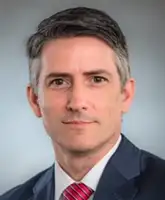
Kevin Haigis, PhD
SCIENTIFIC ADVISOR
Dr. Kevin Haigis has a long-standing interest in intestinal biology and gastrointestinal cancers. He received his Ph.D. from the University of Wisconsin – Madison where, as a student in the laboratory of Dr. William Dove, he studied the chromosomal mechanisms governing tumor initiation in the ApcMin model of intestinal tumorigenesis. He performed his post-doctoral work in the laboratory of Dr. Tyler Jacks at the Massachusetts Institute of Technology. There, he focused on the role of the Ras oncoproteins in colorectal cancer, exploring the functional differences among the RAS family members in colorectal cancer. He was a Robert Black Fellow of the Damon Runyon Cancer Research Foundation and received the Howard Temin Award K01 from the National Cancer Institute.
Dr. Haigis has been a member of the Harvard Medical School faculty since 2007. He is currently a Professor of Medicine at Harvard Medical School and the Chief Scientific Officer at the Dana-Farber Cancer Institute. His laboratory combines computational and informatic approaches with experimental approaches in genetically engineered mice and human models to study the relationship between RAS signaling, colorectal cancer, and inflammation.
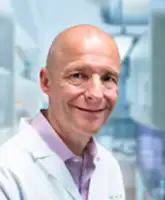
Dr. Eric Jonasch, MD
SCIENTIFIC ADVISOR
Eric Jonasch, MD, is a professor in the University of Texas Department of Genitourinary Medical Oncology, Division of Cancer Medicine at MD Anderson Cancer Center. In addition to his clinical practice, he is the principal investigator in numerous grants and serves on the Medical Advisory Board of the Von Hippel Lindau Family Alliance and the Kidney Cancer Medical Advisory Board.
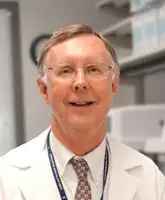
C. Kent Osborne, MD
SCIENTIFIC ADVISOR
Kent Osborne, MD is the Director of the Dan L Duncan Comprehensive Cancer Center at Baylor College of Medicine (BCM). He also serves as the Dudley and Tina Sharp Chair for Cancer Research and professor in the Department of Medicine at BCM. He has published extensively on the biology and treatment of breast cancer.

Joana Paredes, PhD
SCIENTIFIC ADVISOR
Joana Paredes, PhD is Group Leader of the Cancer Metastasis group at i3S – Institute for Investigation and Innovation in Health of the University of Porto and Professor at the Faculty of Medicine of Porto University. Currently, she is also President of the Portuguese Association for Cancer Research (ASPIC). Joana graduated in Biology at Coimbra University in 1999 and completed her PhD in Human Biology at the Medical Faculty of Porto University in 2004. With the support on a FCT PhD grant, she worked at the Cancer Research Lab of Gent University (Belgium), a reference lab in cell-cell adhesion and cancer. In 2008, she was hired by Ciência 2007 program, to establish a novel independent research line at Ipatimup (Porto, Potugal), related to the role of cell-cell adhesion molecules in cancer stem cell biology. Joana Paredes published as senior author in 2010 and was selected for a competitive iFCT position (Development Grant), in 2013, as an independent researcher.
In 2019, Joana acquired a tenure position at Ipatimup/i3S. Throughout her career, she has been always committed to understand how cell-cell adhesion signaling regulates collective cell invasion, metabolic behavior and stem cell properties of cancer cells, supporting the use of adhesion molecules as prognostic biomarkers in cancer. Currently, she is focused on studying how cell-cell adhesion impacts an increased metastatic behavior. Joana Paredes has published 90 manuscripts in international peer-reviewed journals, which gathered more than 4800 citations by peers, endowing her an h-index of 41. Joana has coordinated research projects funded by FCT, Portugal 2020, Novartis, Sanofi-Aventis International, Gulbenkian Foundation, and patient’s associations, such as Laço and No Stomach for Cancer. Her translational work was further recognized with awards from Hologic, AstraZeneca and LPCC. As a mentor, Joana has already supervised or co-supervised 11 PhD students and 21 MSc students. She has also supervised the scientific activities of 8 young research fellows and 6 post-doctoral fellows.
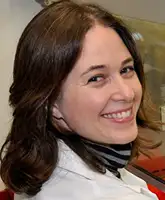
Katerina Politi, PhD
SCIENTIFIC ADVISOR
Katerina Politi studied Biology at the University of Pavia in Italy. She then moved to New York, where she obtained her PhD in Genetics and Development working with Argiris Efstratiadis at Columbia University. Following graduate school, she joined Harold Varmus’s lab at Memorial Sloan-Kettering Cancer Center and began her work on the molecular basis of lung cancer. She continues this work at Yale as an Associate Professor in the Departments of Pathology and Internal Medicine (in the Section of Medical Oncology). Her laboratory is focused on studying the biology of lung cancer and on uncovering mechanisms of resistance to targeted therapies and immunotherapies in this disease. At the Yale Cancer Center, Dr. Politi is a co-leader of the Cancer Signaling Networks Research Program and the Scientific Director of the Center for Thoracic Cancers.

Julien Sage, PhD
SCIENTIFIC ADVISOR
Julien Sage, PhD grew up in France. He went to college at the École Normale Supérieure in Paris and did his PhD at the University of Nice and post-doctoral training at MIT. He started his own research group at Stanford in 2004. He is currently the Elaine and John Chambers Professor in Pediatric Cancer and a Professor of Genetics at Stanford University where he serves as the co-Director of the Cancer Biology PhD program For his work on cancer genetics, he has been awarded a Damon Runyon Cancer Research Foundation Scholar Award, a Leukemia and Lymphoma Society Scholar Award, and an R35 Outstanding Investigator Award from the National Cancer Institute. Dr. Sage has been working on the RB tumor suppressor pathway and how inactivation of RB promotes tumorigenesis in children and adult patients. Dr. Sage became initially interested in small cell lung cancer because of the nearly ubiquitous loss of RB in this cancer type and the intriguing relationship in mice and humans between loss of RB and the growth of neuroendocrine lesions. In the past few years, the Sage lab has developed pre-clinical models for small cell lung cancer and has used these models to investigate signaling pathways driving the growth of this cancer type and to identify novel therapeutic targets in this recalcitrant cancer. A major focus of the Sage lab is to investigate how neuronal differentiation may promote the migration of SCLC cells, their metastasis, and their interactions with other cells in the tumor microenvironment, including in the brain.
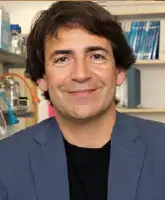
Bruno Silva-Santos
SCIENTIFIC ADVISOR
Bruno Silva-Santos is a Full Professor and Director of Immuno-Oncology at the Faculty of Medicine of the University of Lisbon, and Group Leader and Vice-Director of the Institute of Molecular Medicine (iMM) in Lisbon, Portugal. He did his PhD in Immunology at Cancer Research UK (The London Research Institute), and trained as a post-doc at King’s College London, before establishing his own group at iMM in 2006. His research, which has been funded, among others, by the European Research Council and the la Caixa Foundation, is mostly dedicated to gamma-delta T cells, having dissected novel molecular mechanisms of their differentiation and tumor cell recognition, published in over 100 papers in top international peer-reviewed journals. In 2019, Bruno Silva-Santos was elected Member of European Molecular Organization in recognition of his scientific contributions. His translational work on Immuno-Oncology was further recognized with awards from Pfizer, AstraZeneca, Janssen and Bial; and the nomination as Honorary Member of the European Academy of Tumor Immunology. His work also constituted the basis for a start-up company focused on cancer immunotherapy, Lymphact, whose proprietary technology has been acquired by Takeda Pharmaceutical and is currently under clinical testing in 3 centers the USA (NCT05886491).
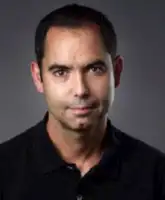
Henrique Veiga-Fernandes, PhD
SCIENTIFIC ADVISOR
Henrique Veiga-Fernandes studied Veterinary Medicine at University of Lisbon, Portugal and at Università degli Studidi Milano, Italy. In 2002, he obtained a PhD in Immunology from Université René Descartes, Paris, France, before moving to the National Institute for Medical Research, London, UK, as a postdoc. In 2009, he set up his independent research group at the Institute of Molecular Medicine, Portugal, and he served as member of the direction team from 2014 to 2016. In that year, Henrique Veiga-Fernandes joined the Champalimaud Centre for the Unknown, Portugal, where he is currently a Group Leader and Research Director. Henrique Veiga-Fernandes made foundational discoveries in the areas of adaptive and innate immunity, more recently pioneering the area of peripheral neuro-immune interactions. Henrique Veiga-Fernandes integrates the Board of Reviewing Editors of Science AAAS, USA, he was elected a member of the European Molecular Biology Organisation (EMBO) in 2015, and he was made Commander of the Order of Sant’Iago da Espada by Portugal in the same year. He integrated the EMBO Young Investigator Programme in 2008 and he secured several European Research Council (ERC) awards (2007, 2013, 2015, 2017 and 2023). He won the Pfizer Prize for basic Science (2014, 2016, 2020 and 2022), the senior research award from the Crohn’s and Colitis Foundation of America, USA (2014), the Innovator and Breakthrough Awards from the Kenneth Rainin Foundation, USA (2013 and 2014), the Allen Distinguished Investigator award in 2018, and the Chan Zuckerberg Initiative (CZI) Award, USA in 2020.
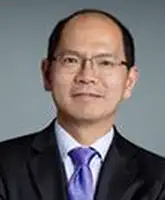
Kwok-Kin Wong, MD, PhD
SCIENTIFIC ADVISOR
Kwok-Kin Wong, MD, PhD focuses his research, teaching and clinical activities on understanding the genetic alterations driving lung tumor formation and the testing of new targeted and immune lung cancer therapies. His laboratory integrates human cancer genomic studies, the generation of new mouse models of cancers, and novel drug treatment studies. The unique models used in Dr. Wong’s laboratory allow scientists to investigate the efficacy of new targeted therapeutics and immunotherapeutics. Furthermore, these “mouse clinical trials” will help uncover the molecular mechanisms and genetic underpinnings of sensitivity and resistance to targeted therapies and immunotherapy. Insights into these processes gained by Dr. Wong and his team continue to lead us closer to curative treatments for patients with advanced lung cancer. Dr. Wong is currently a professor of medicine and director of medical hematology and oncology at the Laura & Isaac Perlmutter Cancer Center at New York Langone Health. He has authored more than 200 peer reviewed publications and is a member of The American Society for Clinical Investigation/The American Association of Physicians (ASCI/AAP).